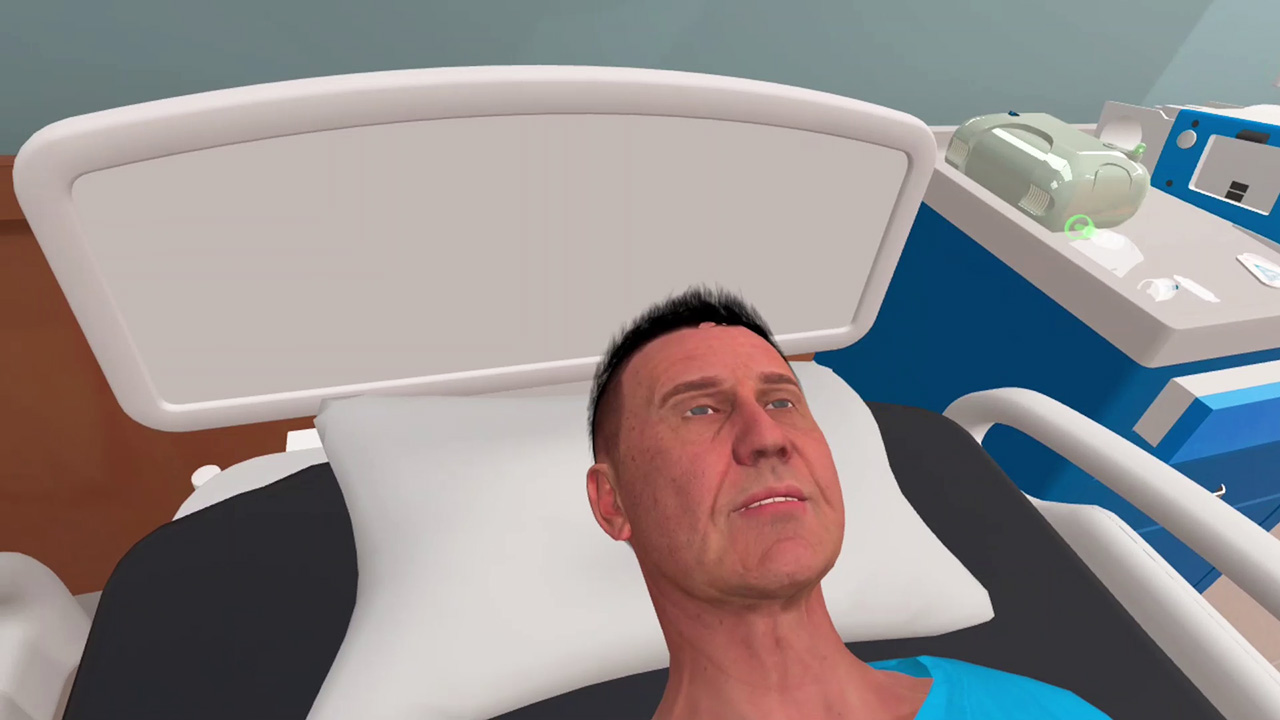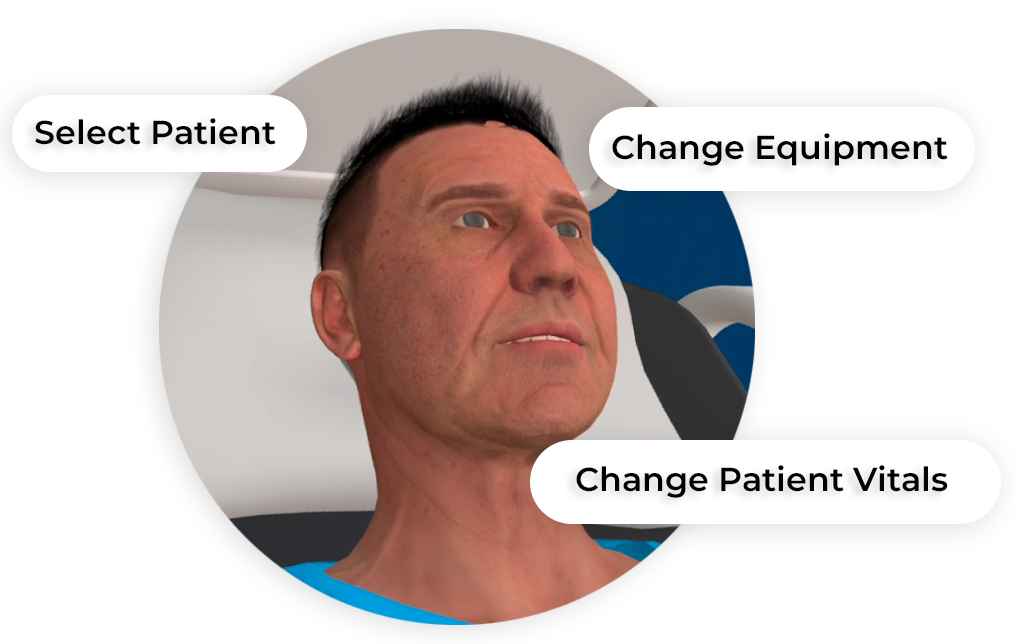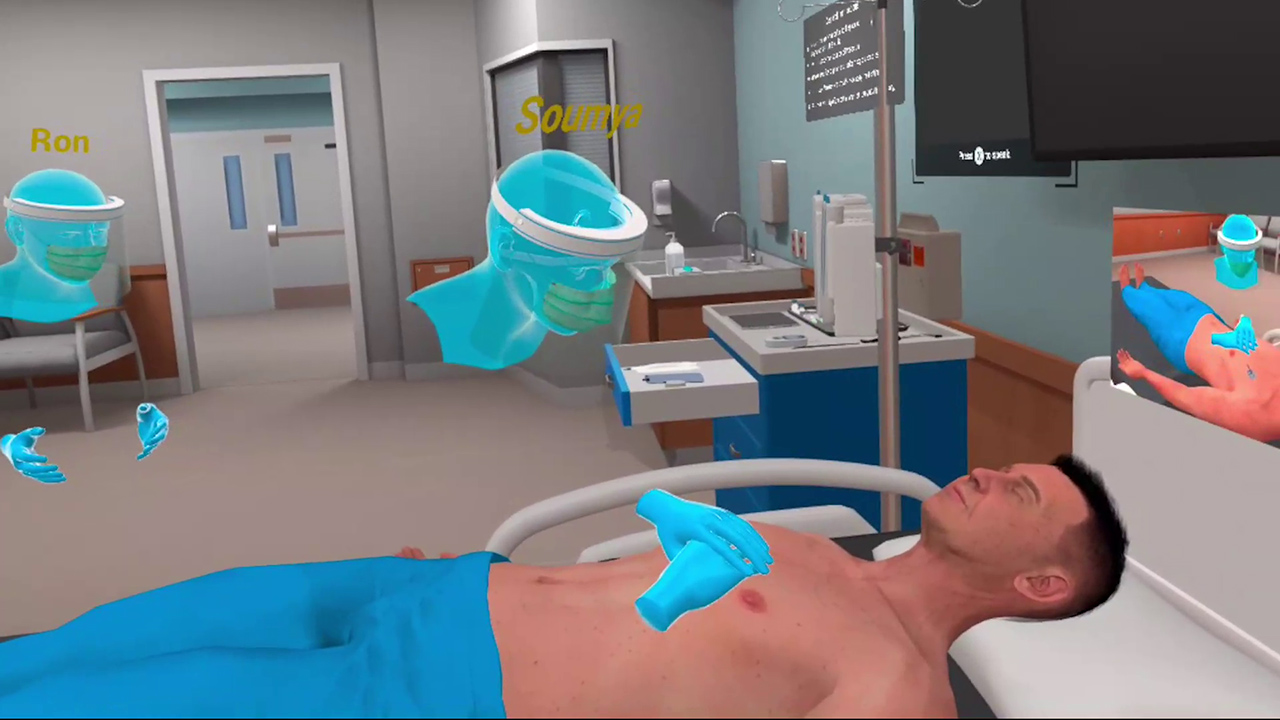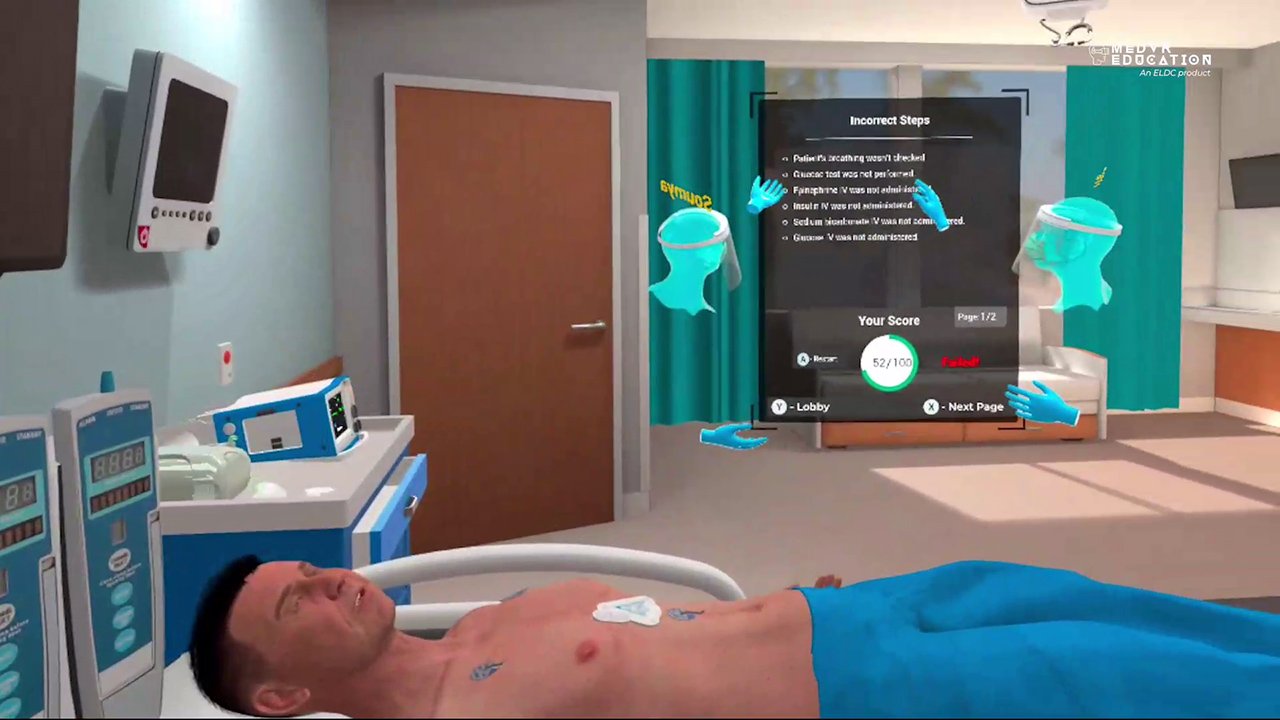Hyperkalemia
Doug Smith is a 62-year-old male who was admitted three day prior due to a community acquired pneumonia. Awaiting discharge, he was noted to be hypokalemic on labs this morning (3.2 mEq/L). The daytime resident ordered KCl 10mEq in 100cc NS bolus, to be administered once. The overnight nurse found him to be confused and bradycardic as he was placed on infusion for the past 10 hours. Due to some clerical error, he has been administered 10 times the recommended dose.
As a healthcare practitioner, what would be your next course of action?
This multiplayer, open-scenario VR simulation is designed to help healthcare practitioners identify and respond to a patient of severe hyperkalemia. The post-session debriefing serves as a self-analysis helping learners identify errors and rectify them.
- Providing specific treatment for severe hyperkalemia
- Prioritizing initial investigations and therapies
- Maintaining situation awareness of an unstable patient
- Communicating the clinical situation clearly to consultants

- Mount DB. Disorders of potassium balance. In: Brenner and Rector’s The Kidney, 11th ed, Yu A, Chertow G, Luyckx V, et al (Eds), W.B. Saunders & Company, Philadelphia 2020. p.537.
- Winkler AW, Hoff HE, Smith PK. Factors affecting the toxicity of potassium. Am J Physiol 1939; 127:430.
Customize Your Program
Get rid of the editor. Adopt in-VR customization.
MedVR Education is bringing to you in-VR customization that will enable you to put together your own simulations by making selections from a wide range of feature choices.
- Select patient from a diverse background
- Choose preferred virtual environment
- Configure patient vitals
- Define simulation duration
- Create patient history and train with AI-Humans
- Customize session-end debriefing
- …..many more to come

 AI Patient Assessment
AI Patient Assessment Natural Language Processing
Natural Language Processing Multi-player
Multi-player
Sessions Physics-based Interaction
Physics-based Interaction
Core Skills Training

Hyperkalemia
In this open scenario simulation, the learner is expected to identify and respond to a patient of severe hyperkalemia. The patient’s lab reports need to be checked and attempts made to stabilize the bradycardic patient. Learner will check the patient’s pulse and could consider using a defibrillator or administer CPR. With the worsening condition of the patient, a call will be placed to an experienced physician. Affordance are made available to perform the necessary steps in the scenario. The team can discuss the case and share knowledge and experiences to treat the patient.
Debriefing
End-of-task debriefing to assess one’s performance, evaluate actions, and get the most out of the session. The debriefing includes crucial points related to the scenario.
- Thorough patient assessment
- Completion of necessary steps
- Correct medication administration to patient
- Sequential completion of task
- Execution of time-sensitive tasks







